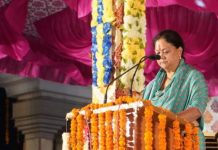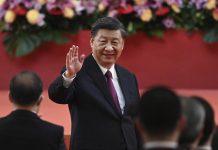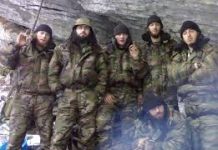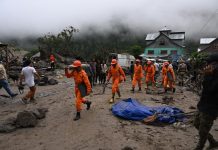
IN OCTOBER 2008, security forces killed four suspected Lashkar-e-Toiba militants in Kupwara district of Jammu & Kashmir. It soon emerged that the youths were from Kerala, and when the media descended on their families, the mother of one of them declared that she did not want to see her son’s face as he was a traitor to the nation. Her statement made her famous, with politicians and the media calling her a role model for Muslim mothers in the state. It was only later that she confessed that she had said what she did out of desperation after days of being hounded by the police and facing suspicion from her neighbours.
Muhsin Parari, then 20, was inspired by the incident to write a poem, a monologue by the father of one such youth expressing his astonishment at finding out that his son has been branded a terrorist. “When his chaps took him to the carnival to buy balloons,” the father says, “he stained his trousers hearing crackers burst. And now we hear… bomb!” Parari, who specialised in Islamic jurisprudence and Arabic and is a member of the Students Islamic Organisation of India (SIO), went on to form Mappila Lahala last year. The collective is the result, he says, of discussions with friends over coffee, at film festivals and other cultural activities in Kozhikode. Named after the Malabar Revolt of 1921, Mappila Lahala seeks to use hip-hop to start conversations on violence, religion and much more. “The very history of hip-hop shows that it is connected with resistance, originally about identity and dignity,” says Parari.
For its inaugural project, Native Bapa, Parari revisited that poem he wrote four years ago and set it to a rap rhythm. He directed the music video, which has had 1.3 lakh hits on YouTube since it was released at midnight on 31 December. Despite Parari’s ties to the SIO, Mappila Lahala, he says, is not associated with the organisation, adding, “The other members have their own political and religious views.” Neither does Native Bapa ask the listeners to take sides, condemning violence in all forms. “No scepticism in my lyricism / I raise an iron fist against terrorism / Islam is peace in its definition / People are brainwashed by the television / Open your eyes, take away the prejudice / Bombing innocents, I’ll call you a terrorist / I don’t care if you are an al-Qaeda militant / Or if the world calls you the US president,” the song goes. When asked whether the son in his poem was actually a terrorist or one of the many innocents gunned down in Kashmir, Parari declines to answer, saying as an artist, he cannot be objective about his work. The song is not about that; it is about a father, the titular bapa, coming to terms with the fact that his son, who he admits he never quite understood, could have been a terrorist. It is a frank monologue, the type one would expect in a chai shop, framed by the incredulous refrain: “Bomb?!”
Native Bapa is also about the ordeal a family faces once a member is branded a terrorist. The father, for instance, doesn’t understand why his wife does not want to see her son’s body. The other performers, however, give a clue by loading imaginary shotguns pointed at him. “But now,” he says in the last, heartbreaking verse, “growing sick of seeing the little ones starved, Malu always in tears, hearth hardly in fire, her eyes with tears spent, a house full of liabilities, trampling police boots, satans landing in OB vans, I also have to feel now: I wanna ne’er see his body, traitor as he is.
“Still, bomb?”
Ajachi Chakrabarti is a Correspondent with Tehelka.
ajachi@tehelka.com













